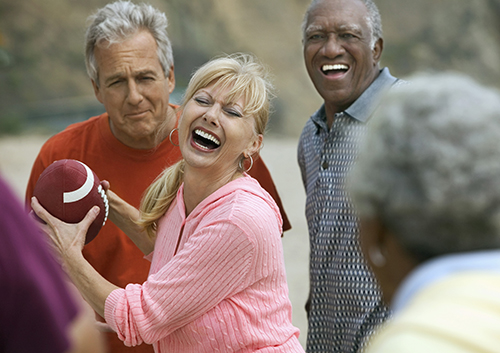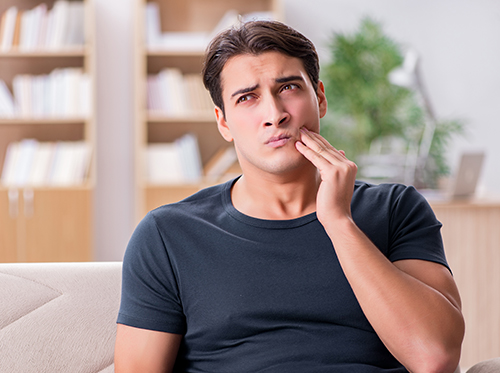There’s an App for That!
September 15th, 2021

We live in a tech-savvy world, and dental professionals take advantage of it! Digital imaging, convenient record storage and sharing, even more comfortable denture design—these are just some of the ways dentists can use modern technology to make our time in the office more efficient and more effective.
And since modern software developers have given us a program for just about everything, it’s no surprise that you can find apps to help make your home dental care more convenient and perhaps even more effective, too. What can an app do for you?
- Brushing and Flossing? Apply Yourself!
A big part of making your smile look its best is the care you take at home. This means keeping up with daily brushing and flossing, and using proper technique. Two minutes brushing, twice each day, and flossing at least once a day are the basic recommendations for preventing cavities and gum disease.
And to help you make sure you get a solid two minutes of brushing twice a day? Try an app that plays two minutes of your favorite music with a perfectly timed brushing playlist. Apps can also send you brushing and flossing reminders, let you know when it’s time to change your toothbrush (every three months, please!), and give you tips on better brushing and flossing techniques.
And for the kids in the house? There are apps just for children that use music and games to help teach them how—and how long—to brush, for an enjoyable and even educational brushing experience.
- Keep Track of Your Appointments
Your dentist is your partner in preventative care. Regular examinations and professional cleanings at our West Bend, WI office not only make sure problems are caught before they become serious, they can help prevent problems from developing in the first place.
There are many apps out there that are designed to help you keep your dental care on track with appointment reminders. This sounds pretty basic, but when you have work, school, volunteering, sports, and activities filling your days, it doesn’t hurt to get a timely reminder that Dr. Carl Meyers should be seeing you for a checkup and a cleaning in the near future.
- Mapping Out Your Dental Care
Have an electric toothbrush? There just might be an app available designed to work especially with your model. These handy apps can let you know if you’re brushing long enough. They can alert you if you’re brushing too hard, which is not good for your enamel. Some apps can provide a map that lets you know just where you’ve brushed, in case you tend to neglect a few spots.
If you or a family member are thinking about orthodontic treatment, you’re in luck!
Not sure just how you’ll look in braces? Get a preview with an app that uses one of your selfies to model different types and styles of braces, brackets, bands, and aligners. Metal brackets? Ceramic? Elastic bands in your choice of colors? No bands at all? Hardly visible aligners? Find the look that works for you.
There are apps which can keep track of the hours you wear your aligners, or alert you to put on or replace your elastic bands if you wear traditional braces. Some apps even let you track your progress with selfies or “countdown” features.
- When Problems Happen
There are apps which can help you with basic dental questions. Apps can let you know that symptoms like a discolored tooth mean you should give your dentist a call, or provide instructions for taking care of simple problems, such as applying wax to an irritating bracket. Always remember, though, an app is not a dentist, and can’t diagnose or suggest treatment. If you have a problem or concern, call us immediately.
- Dentist Approved
If you’ve checked out the dental apps available for your operating system, you know that there are a lot of options out there. To help you find the best app for you and your family, talk to Dr. Carl Meyers.
We might know just the app for your specific dental needs, whether you’re looking to brush up on brushing techniques, organize your time more efficiently, manage your dental care, or simply make your family’s dental activities a little more fun. It’s a tech-savvy world—take advantage of it!






